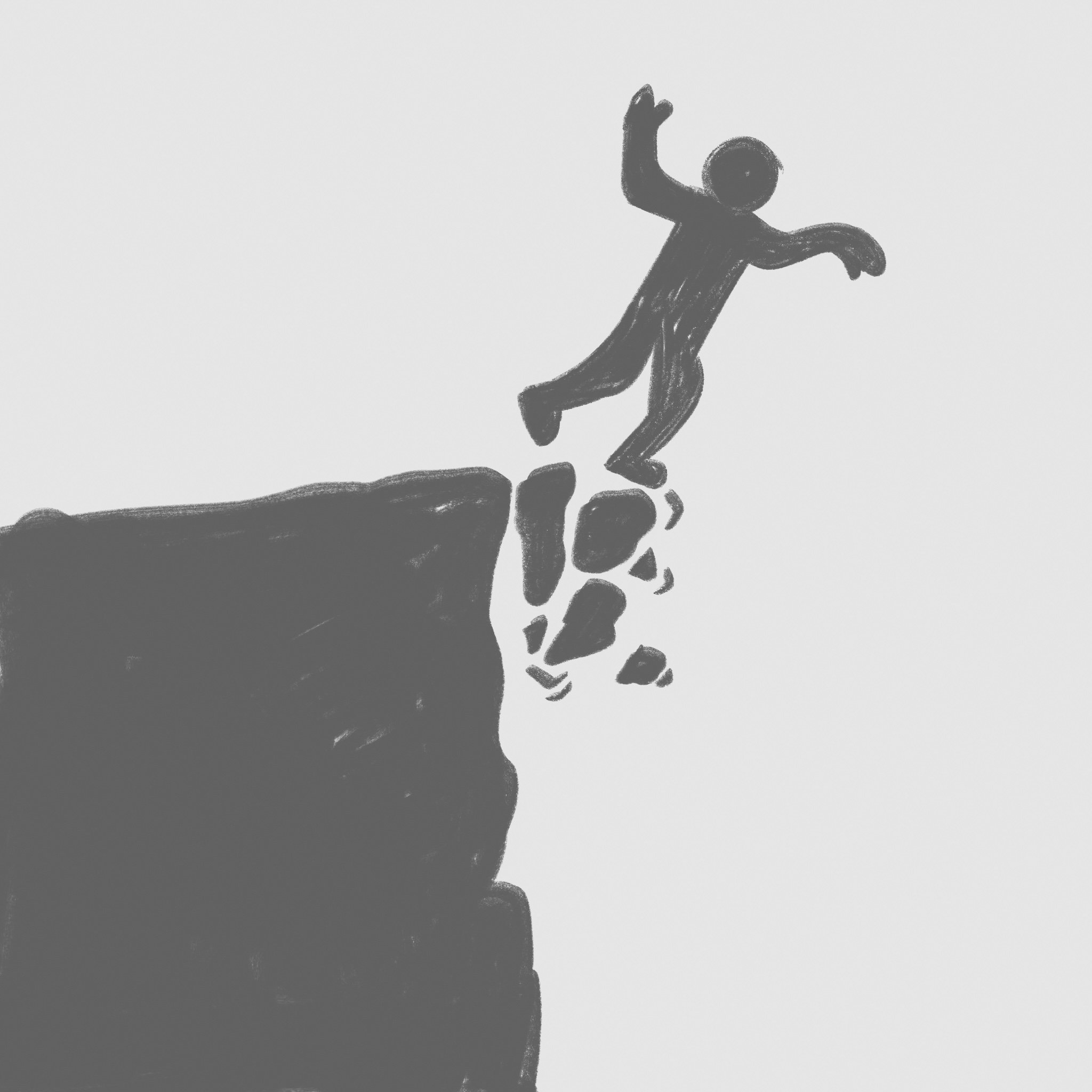Finding solid ground
November 1, 2024
 Henry Abbott
Henry AbbottWe started this column hoping to become better at facing our fears: to do the things that scare us—things like interviewing people and then publishing those words for the whole campus to see. But we found through our conversations that fears are heterogeneous: Some are overwhelming, others manageable, some are ongoing, others isolated, some overcome, others honored. In spite of the wide-ranging reach of the word “fear,” we find a common thread: Fears make us feel unstable. Thus, to manage our fears, we seek solid ground.
Fears have a way of making us feel like the ground beneath us is caving in. Frequently, this feeling is caused by uncertainty.
Sometimes we can lessen uncertainty by learning more. Say you had a fear of flying, like Janie Porche shared with us in our conversation. You can learn more about the safety measures in place and even learn how to pilot a plane yourself, like she did. Now that Janie knows so much about it, flying is less scary for her. Say you are in your senior year, and you will not have a job for several months, like Zelia. You can go to Career Exploration and Development and hear from a career advisor about when jobs in your field of interest will be posted and how to apply to them. In these cases, knowledge offers firm ground to step onto.
Not all fears involve uncertainty. Unfortunately, sometimes, the forecast is bad, and we know it. For example, if we are about to have a difficult conversation with a family member with whom we have had many before, we may know that it will be hard. In these times, anticipation can feel like freefall: awaiting a hard impact. There is no knowledge that can change that.
In other cases, we have uncertainty, but it cannot be resolved. For example, when we are socially anxious, we may fear other people’s perceptions of ourselves. We cannot read the minds of the people around us, and we will never fully know their judgements.
In these cases, where we will never have certainty or in cases where a poor forecast is certain, we need to find solid ground elsewhere. We should not dwell on these fears. We should not continue the ground-destroying exercise of perseverating on them. If we do, we will keep falling and spiraling.
Fears about our self-worth, too, are prone to spirals. When we question our worth and identity, we question the very legs we stand on, and we compromise our ability to find solid ground at all. When we make ourselves feel unworthy and unconfident, it becomes harder to catch ourselves.
Instead, we may need a distraction or a confidence boost. In our conversation with Lilli, she told us that she initially found the distraction she needed on the river. The river, ironically, was her solid ground.

Comments
Before submitting a comment, please review our comment policy. Some key points from the policy: